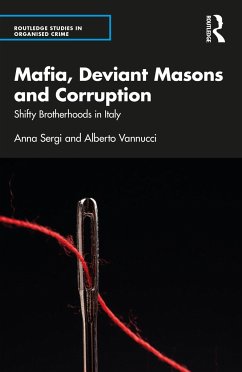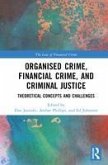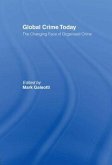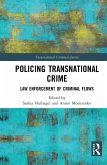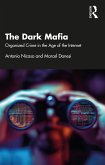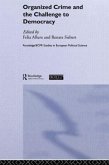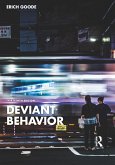This book is the first to consider the intersection between mafia power and deviant masonic lodges within the political sphere of the contemporary Italian state. At its core, it offers an analysis of the shifting interactions across powerful actors and the ways in which they balance reciprocal obedience, and a unique insight into the political processes where mafia actors and deviant lodges play a significant role in the allocation of resources.
Mafia, Deviant Masons and Corruption draws on a wealth of literature from across criminology and political science and a range of primary data sources including judicial files, indictments, arrest warrants, intercepted materials and sentences for key cases, official documentation from Parliamentary commissions and special committees of inquiry, rituals of affiliation and codes of initiation, and interviews with prosecutors, journalists and experts. In doing so it redefines how we have come to understand the relationship betweenmafias and power in Italy. It considers how criminal groups are defined and enriched by a relational capital in shifty environments where every actor assumes often a double nature: the mafia boss acts as an entrepreneur; the entrepreneur acts as a politician; the politician mixes with masons; a deviant mason supports mafia organisations.
This book is a major contribution to the literature on mafias and organised crime across criminology, sociology and political science, and will be of great interest to students, researchers, scholars, and engaged general readers.
Mafia, Deviant Masons and Corruption draws on a wealth of literature from across criminology and political science and a range of primary data sources including judicial files, indictments, arrest warrants, intercepted materials and sentences for key cases, official documentation from Parliamentary commissions and special committees of inquiry, rituals of affiliation and codes of initiation, and interviews with prosecutors, journalists and experts. In doing so it redefines how we have come to understand the relationship betweenmafias and power in Italy. It considers how criminal groups are defined and enriched by a relational capital in shifty environments where every actor assumes often a double nature: the mafia boss acts as an entrepreneur; the entrepreneur acts as a politician; the politician mixes with masons; a deviant mason supports mafia organisations.
This book is a major contribution to the literature on mafias and organised crime across criminology, sociology and political science, and will be of great interest to students, researchers, scholars, and engaged general readers.
No issue is enveloped in the same toxic blend of controversy and ignorance that characterises public discussion of the links between Freemasonry and criminality. This is especially so in Italy, where a black legend has developed about the ties between mafia organisations and Masons. Nobody is better equipped to shed the light of social scientific understanding on this fraught topic than Alberto Vannucci, one of Italy's key authorities on corruption, and Anna Sergi, one of the leading experts on the Calabrian mafia or 'ndrangheta. Their book is as important as it is fascinating.
John Dickie, Professor of Italian Studies, University College London
As a hidden exchange, corruption needs secrecy, but also powerful actors to reduce its transaction costs and ensure compliance. Rich in empirical evidence and original in its theoretical reflections, this precious volume illuminates how and under which conditions deviant masons and mafia bosses perform that role.
Donatella Della Porta, Professor of Political Science, Scuola Normale Superiore, Pisa
The interplay and exchange of services between organized crime and the official world have been objects of study for decades. The originality of this timely book consists in adding a neglected deviant actor to the equation: masonry. This is a breath-taking, remarkable journey into the Italian deep state.
Vincenzo Ruggiero, Professor of Sociology, Middlesex University, London
John Dickie, Professor of Italian Studies, University College London
As a hidden exchange, corruption needs secrecy, but also powerful actors to reduce its transaction costs and ensure compliance. Rich in empirical evidence and original in its theoretical reflections, this precious volume illuminates how and under which conditions deviant masons and mafia bosses perform that role.
Donatella Della Porta, Professor of Political Science, Scuola Normale Superiore, Pisa
The interplay and exchange of services between organized crime and the official world have been objects of study for decades. The originality of this timely book consists in adding a neglected deviant actor to the equation: masonry. This is a breath-taking, remarkable journey into the Italian deep state.
Vincenzo Ruggiero, Professor of Sociology, Middlesex University, London

